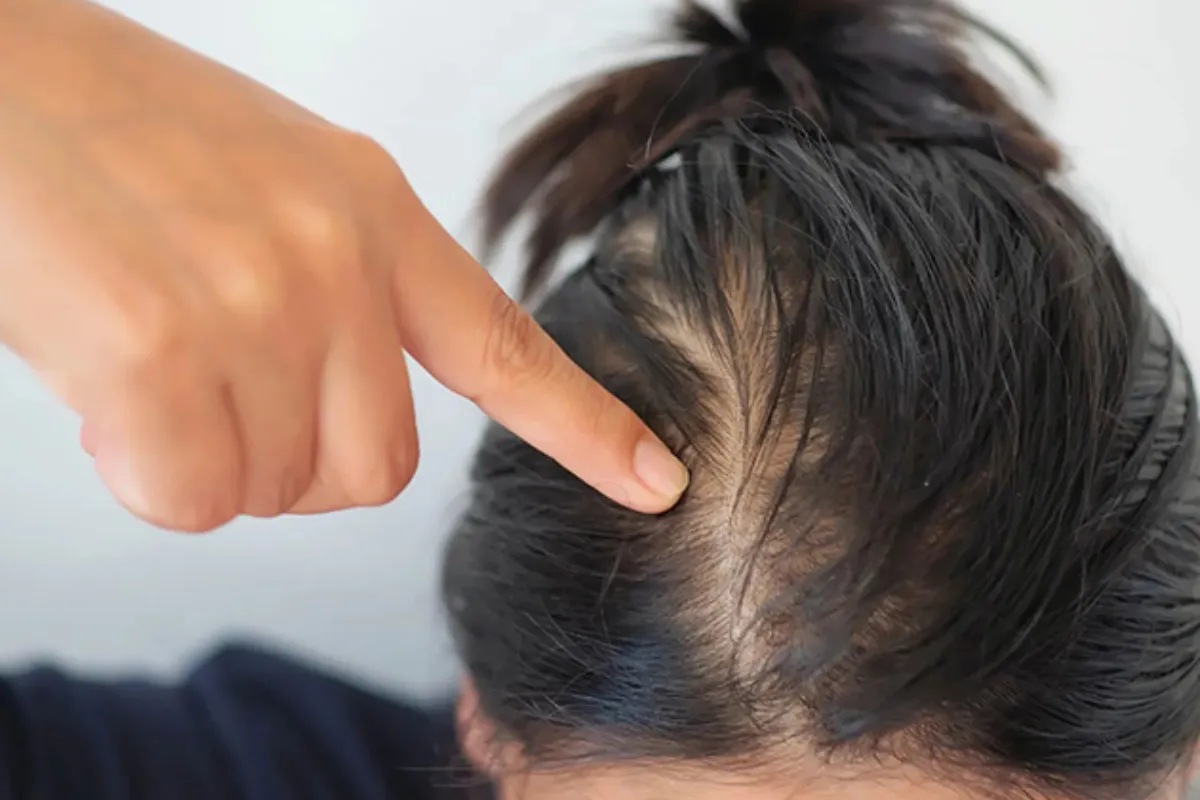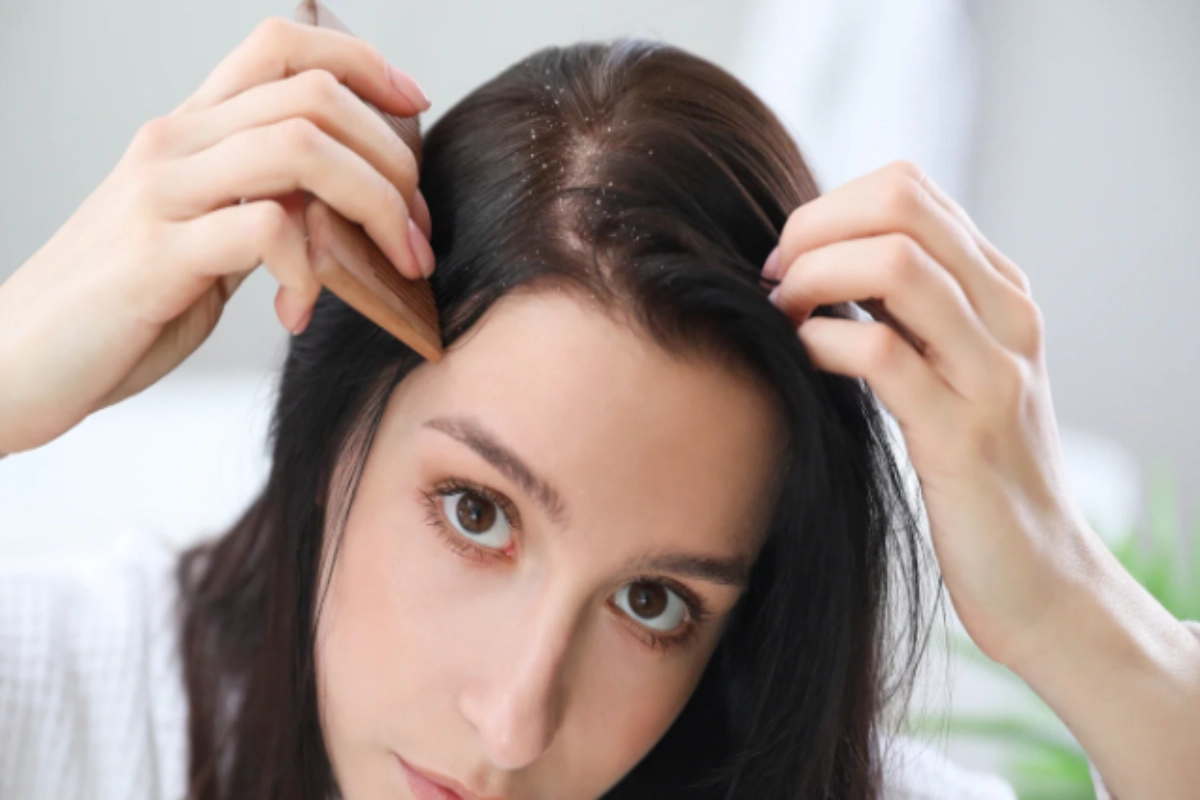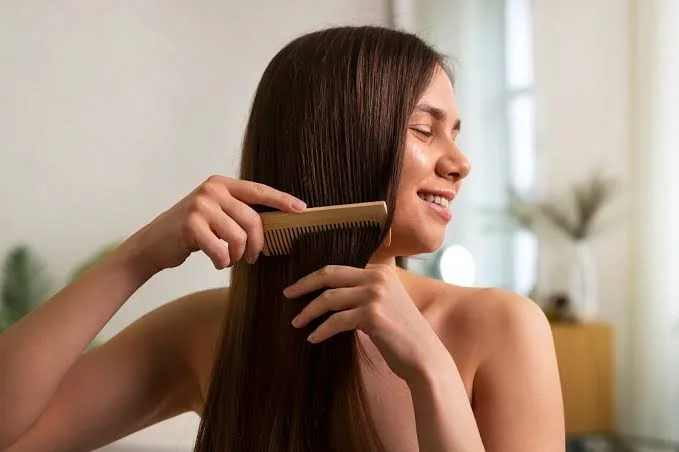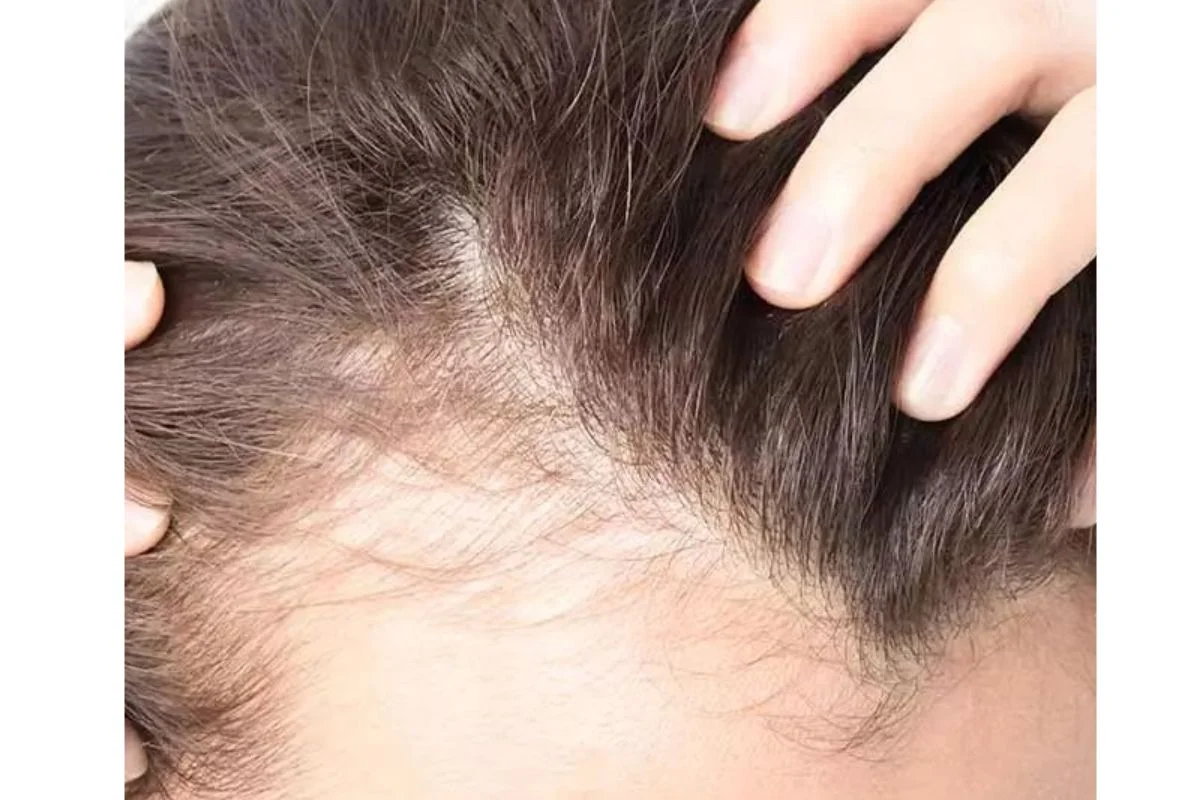Hair Care Tips: Embarking on a journey to achieve strong hair? This comprehensive guide will be your roadmap to not just managing but completely stopping hair fall. Let’s delve into understanding growth cycles, identifying common causes, adopting a balanced diet, emphasizing hydration, choosing the right products, and incorporating natural remedies.
Understanding Hair Growth Phases
Comprehend the three key phases of the hair growth cycle – Anagen, Catagen, and Telogen. Knowing these phases is crucial for identifying the causes of hair fall and implementing targeted strategies for healthier locks.
- Anagen Phase: The Growth Phase During this active phase, lasting 2-7 years, hair follicles generate new cells, determining the length of your hair.
- Catagen Phase: Transitional Stage A two-week transitional phase signaling the end of active growth, during which hair detaches from the blood supply.
- Telogen Phase: Resting Period Lasting around 3 months, this resting phase precedes shedding, allowing new hair to grow. Approximately 10-15% of hair is in this phase.
Common Causes of Hair Fall
Uncover the culprits behind hair fall, whether it’s hormonal changes, nutritional deficiencies, stress, genetics, or poor hair care practices. Identifying these triggers is the first step toward effective prevention and treatment.
Balanced Diet for Healthy Hair
Explore the importance of nutrition with a focus on protein-rich foods, omega-3 fatty acids, iron, zinc, and essential vitamins. A well-rounded diet is the cornerstone for vibrant and strong hair.
Importance of Hydration
Proper hydration positively influences scalp and hair health. Learn how moisturized scalp and well-hydrated hair shafts contribute to preventing dryness, breakage, and supporting growth.
Choose the Right Hair Products
Discover the crucial factors to consider when selecting hair care products. From sulfate-free shampoos to suitable conditioners, make informed choices to prevent damage and promote overall well-being.
Avoid Heat Damage
Minimize the adverse effects of excessive heat on your hair. Learn how to use styling tools sparingly, adjust heat settings, and apply heat protectants to maintain healthy locks.
Regular Trimming
Understand the significance of regular trims beyond a cosmetic choice. Trimming prevents split ends, stimulates growth, and maintains the overall health and appearance of your hair.
Gentle Hair Handling
Incorporate gentle practices into your hair care routine to minimize breakage. From using a wide-tooth comb to avoiding tight hairstyles, these tips contribute to the longevity and strength of your hair.
Use of Natural Remedies
Harness the power of nature with a focus on aloe vera, coconut oil, avocado masks, and other natural remedies that provide holistic care, nourishing and strengthening your hair.
Minimize Chemical Treatments
Preserve your hair’s natural strength and vitality by minimizing chemical treatments. Opt for ammonia-free products, avoid overprocessing, and engage in deep conditioning post-treatments.
Manage Stress
Learn how effective stress management positively impacts both mental well-being and hair health. Explore relaxation techniques, regular exercise, and adequate sleep as essential components of stress reduction.
Regular Exercise
Experience the positive transformation in your hair health through regular exercise and physical activity. These habits create a significant impact by enhancing blood circulation, reducing stress, maintaining hormonal balance, and contributing to overall scalp health.
Hair Masks and Treatments
Pamper your hair with nourishing masks and treatments. From deep conditioning to protein-rich treatments, these practices contribute to well-nourished and rejuvenated locks.
Avoid Tight Hairstyles
Understand the impact of hairstyle choices on hair health. Opt for looser styles to reduce tension, prevent scalp irritation, and minimize breakage.
Medical Conditions and Hair Loss
Explore the connection between hair loss and underlying medical conditions. Consult healthcare professionals for evaluation and management to ensure a healthier mane.
Professional Consultation
Consider the benefits of seeking guidance from dermatologists or trichologists. Personalized examinations, treatment plans, and regular follow-ups can make a significant difference in addressing hair concerns.
Disclaimer: This material, including advice, provides general information only. It is in no way a substitute for a qualified medical opinion. Take the methods, and claims mentioned in this article as suggestions only; DNP India does not confirm or refute them. Consult a doctor before implementing any such suggestions/ treatment/medicine/diet.
Keep watching our YouTube Channel ‘DNP INDIA’. Also, please subscribe and follow us on FACEBOOK, INSTAGRAM, and TWITTER












